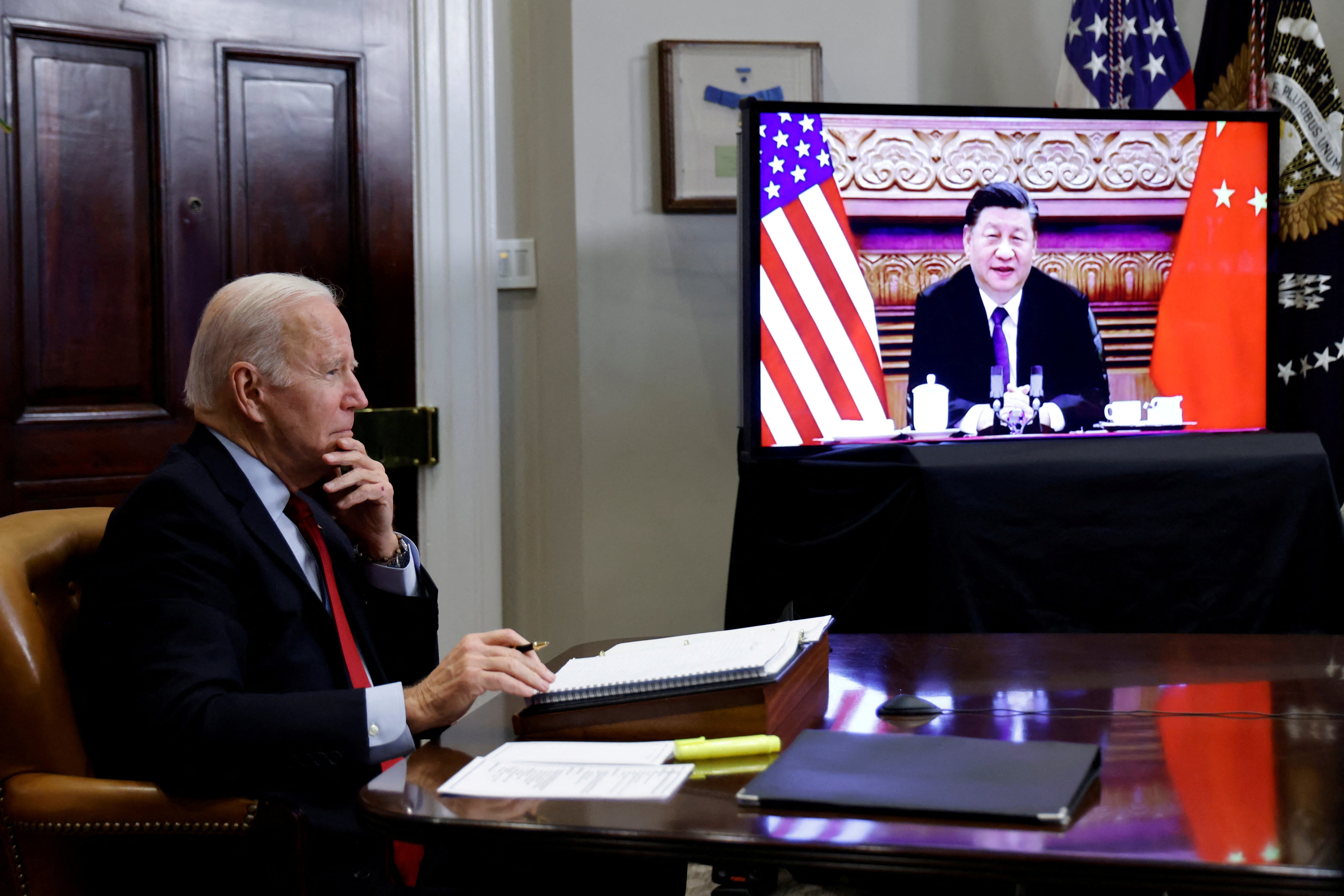
Joe Biden and Xi Jinping will meet in Bali on the sidelines of the G20 summit on Monday, both leaders have confirmed, in a highly anticipated first face-to-face meeting since the Democrat entered the White House as president.
The talks come at a tense time for US-China relations, with ongoing acrimonies and differences of opinion over Ukraine and Taiwan in particular.
The US president is unwilling to make any “fundamental concessions” and will want to raise the issue of Taiwan to lay out America’s “red lines”, Mr Biden said this week at a White House news conference.
A day after the White House announced Mr Biden’s meeting with Mr Xi, the Chinese foreign ministry also confirmed the meeting in what will be only the Chinese president’s second major overseas trip since the Covid pandemic began.
Chinese foreign ministry spokesperson Hua Chunying said on Friday: “During the [G20] summit, Xi Jinping will hold bilateral meetings with French president [Emmanuel] Macron, US president [Joe] Biden, Senegalese president [Macky] Sall and Argentine president [Alberto] Fernandez.”
White House officials have outlined four top agenda items for the meeting: concerns over China’s assertiveness in Taiwan and human rights violation issues as well as the global issues of Russia’s war in Ukraine and North Korea’s provocations in the Korean peninsula.
“The leaders will discuss efforts to maintain and deepen lines of communication between the United States and the PRC, responsibly manage competition, and work together where our interests align, especially on transnational challenges that affect the international community,” said White House press secretary Karine Jean-Pierre in a statement.

The president believes it is critical to “build the floor” of a functional relationship and ensure there are rules that bound the competition, an official said.
The two-day G20 summit is being held in Bali under the Indonesian government’s presidency. Several world leaders, including Indian prime minister Narendra Modi, Canadian president Justin Trudeau and British prime minister Rishi Sunak have confirmed their attendance at the platform.
But Russian president Vladimir Putin has backed out of the G20 summit in the face of overwhelming opposition from fellow world leaders over his invasion of Ukraine. He is expected to attend in some capacity virtually.
Amid a recent spike in tensions and rhetoric between China and several of its regional neighbours, America’s Asian allies such as India, Japan and Australia will be closely watching the meeting.
The White House however appeared to downplay the expectations of a major breakthrough in strained ties. “I don’t in any way think that the two leaders are going to sit down and be able to solve all their differences or problems,” a senior administration official said.
The relationship between the two superpowers is at its lowest ebb in decades, following House speaker Nancy Pelosi’s visit to Taiwan – a self-governing island nation that Beijing sees as its own territory.
Beijing responded with large scale military exercises around the island and the Biden administration subsequently imposed sweeping restrictions on the sale of advanced chips to China. The row concluded with China suspending cooperation with the US in a range of fields including climate action and high-level military dialogue.
The Biden-Xi meeting comes after significant political moments for both leaders domestically. Mr Xi last month secured an unprecedented third term as leader of the Chinese Communist Party and president, and stacked his party’s Politburo with so-called “yes-men”. Meanwhile, Mr Biden has emerged stronger than expected in the US midterm elections, bolstering his prospects of running again for president in 2024.
Bonnie Glaser, an Asia expert at the German Marshall Fund of the United States, told Reuters that the meeting will provide an opportunity to dial down tensions, with Beijing also signalling that it is not interested in any further deterioration in relations.
“But it is unclear what they are willing to do to achieve that,” she said. “The Biden administration has been pushing for talks on risk-reduction measures since mid-2021, and the PRC hasn’t been interested.”







